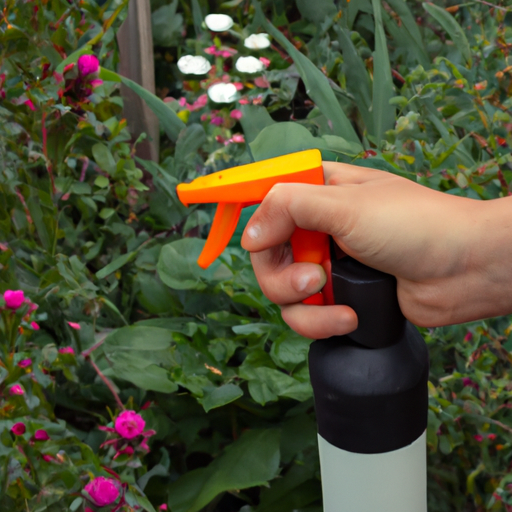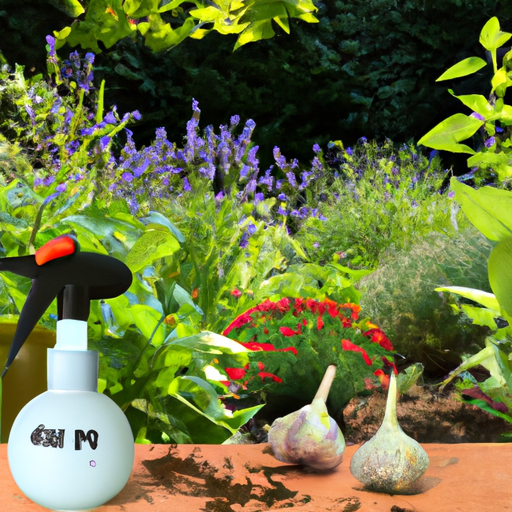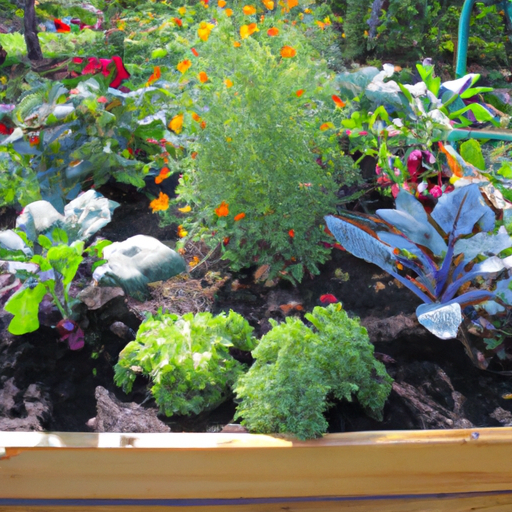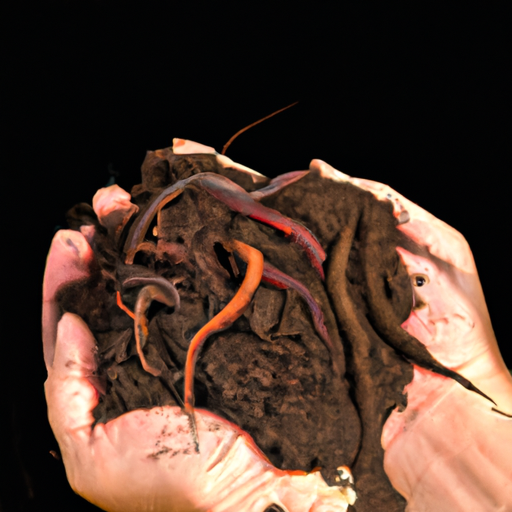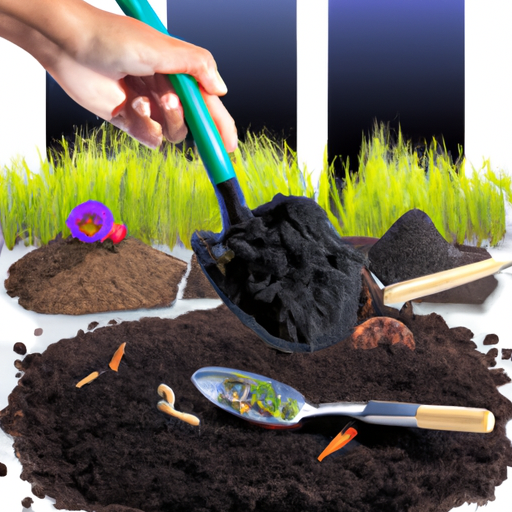Do you want to eliminate pests from your garden without using harsh chemicals? Are you looking for a cost-effective way to control insects in and around your home? If so, then DIY pest control may be just what you need.
By making your own insecticides, you can save money, reduce harmful chemical exposure, and take control of the health and well-being of your family.
As a Master Gardener, I know firsthand the importance of controlling pests in a safe and effective manner.
Traditional pesticides often contain toxic chemicals that not only harm beneficial insects but also pose risks to human health.
However, with some basic knowledge and simple ingredients, you can create natural remedies that are both environmentally friendly and highly effective at managing unwanted guests in your outdoor or indoor spaces.
In this article, we will explore several easy-to-make DIY insecticide recipes that will help you keep pesky critters under control while maintaining a healthy ecosystem.
Understanding The Importance Of Natural Pest Control
Hey there, fellow green thumbs! I’m here to talk about the benefits of eco-friendly pest control and why it’s important to ditch those harmful chemical insecticides.
As a Master Gardener, I’ve seen firsthand how these toxic chemicals can not only harm our plants but also have negative effects on our health and the environment.
By opting for natural pest control methods, we can protect ourselves, our gardens, and the planet. Not only are these methods safer for humans and other animals, but they’re also more sustainable in the long run.
So let’s explore some natural alternatives that will keep your garden thriving without compromising your health or Mother Nature’s well-being.
Essential Ingredients For Diy Insecticides
As a Master Gardener, it’s important to have the essential ingredients for DIY insecticides on hand.
Herbs such as peppermint, rosemary, and lavender are great options for natural pest control. These herbs can be used in various forms, including essential oils or dried leaves.
When making your own insecticide, safety precautions should always be taken. Wear protective gear like gloves and eye goggles when handling chemicals or spraying the solution.
Remember to keep all homemade insecticides out of reach from children and pets as well.
By having these key ingredients and taking proper safety measures, you can effectively control pests without harmful chemicals.
Simple Diy Insecticide Recipes
Now that we know the essential ingredients for DIY insecticides, let’s move on to some simple recipes that you can make at home.
For those looking for a more natural option, an herbal insecticide may be just what you need. Simply mix together one gallon of water with a cup of chopped hot peppers, two cloves of garlic, and a tablespoon of dish soap. Let it sit overnight before straining and spraying onto plants as needed.
Another popular option is a vinegar spray which is effective against both insects and fungi. Mix equal parts water and white vinegar in a spray bottle and add in a few drops of dish soap for added effectiveness.
These easy-to-make solutions are great alternatives to store-bought pesticides and will help keep your garden thriving without harmful chemicals or additives.
Applying Diy Insecticides For Maximum Effectiveness
To achieve maximum effectiveness when applying DIY insecticides, it is important to consider both application techniques and safety precautions.
When selecting an application technique, be sure to choose the method that best suits the type of insecticide you are using and the area you need to treat. For example, if you are using a spray, make sure to cover all surfaces thoroughly and evenly. If using dust or bait, apply in small amounts directly where pests have been seen.
Safety precautions should always be taken seriously when working with any type of pesticide. Wear protective clothing such as gloves, goggles, and long-sleeved shirts to prevent skin contact and inhalation of fumes. Keep children and pets away from treated areas until completely dry or recommended time has passed. Follow instructions on the label carefully for proper storage and disposal.
By following these simple tips for application techniques and safety precautions, you can effectively control pest problems while keeping yourself and your family safe from harmful chemicals.
Remember to always read labels carefully before use!
Tips For Maintaining An Eco-Friendly Pest Control Regimen
As a Master Gardener, I highly recommend maintaining an eco-friendly pest control regimen for your garden. Not only is it better for the environment, but it can also be more cost-effective and sustainable in the long run.
One way to do this is by practicing companion planting, which involves growing certain plants together that have natural insect-repelling properties or attract beneficial insects like ladybugs or lacewings. For example, planting marigolds with tomatoes can deter nematodes while attracting pollinators.
Another method is integrating beneficial insects into your garden ecosystem through techniques such as releasing praying mantises or introducing parasitic wasps to control aphids.
By incorporating these methods into your pest control routine, you can create a healthier and more balanced garden environment without relying on harmful chemicals.
Frequently Asked Questions
Are Diy Insecticides As Effective As Commercial Insecticides?
When it comes to controlling pests in your garden, there are plenty of options available.
Many people turn to commercial insecticides as a quick and convenient solution. However, these products often come with their own set of problems, such as potentially harmful chemicals and negative impacts on the environment.
On the other hand, DIY insecticide ingredients can be made from natural materials that are safer for both you and your plants. While they may not always be as effective as commercial products, they do offer a more sustainable approach to pest control.
It’s important to weigh the pros and cons of using both types of insecticides before making a decision about what will work best for your specific situation.
Can Diy Insecticides Be Harmful To Humans Or Pets?
When making your own insecticides at home, it’s important to consider the potential risks that may come with these DIY solutions.
While they may be effective in controlling pests, certain ingredients can be harmful to both humans and pets if not handled properly.
To ensure safety, make sure to wear protective gear like gloves and masks when handling any chemicals.
Additionally, consider using alternative methods for pest control such as natural repellents or seeking professional help from licensed exterminators.
Remember, taking precautions is key to keeping everyone safe while still effectively managing pesky insects in your garden or home.
How Long Does Diy Insecticide Last Before It Needs To Be Reapplied?
When it comes to DIY insecticides, the longevity of its effectiveness is a common concern. The truth is that there isn’t a one-size-fits-all answer as it depends on the specific type of insecticide you’ve created and the area where it’s applied.
Some homemade insecticides may last for several days while others only last for a few hours. However, when comparing the effectiveness of DIY insecticides with commercial ones, it’s important to note that store-bought options often contain stronger chemicals designed to provide longer-lasting effects.
As always, be sure to read up on proper application techniques and safety precautions before using any pest control solution in your home or garden.
Can Diy Insecticides Be Used On All Types Of Pests?
When it comes to DIY insecticides, the effectiveness of natural options can vary depending on the type of pest you’re dealing with.
While some homemade sprays may work well for certain insects like ants or aphids, they may not be as effective against others such as cockroaches or bed bugs.
It’s important to do your research and find recipes specifically designed for the pests you are trying to target.
Additionally, keep in mind that even if a DIY insecticide is effective initially, it may need to be reapplied periodically to maintain its efficacy.
As always, when using any kind of pesticide – whether store-bought or homemade – be sure to follow all safety precautions and use only as directed.
Are There Any Legal Restrictions On Using Diy Insecticides?
Did you know that in the United States, there are over 17,000 reported cases of pesticide poisoning every year?
This statistic highlights the importance of being cautious when using any form of insecticide.
When it comes to DIY insecticides, there are legal concerns that need to be considered.
While homemade insecticides may seem like a cost-effective and natural solution for pest control, it’s important to research DIY insecticide regulations in your area before use.
Some states have restrictions on certain chemicals or require licensing for their application.
Always prioritize safety and education when it comes to pest control methods, whether homemade or store-bought.
Conclusion
In conclusion, DIY insecticides can be just as effective as commercial ones when made and used correctly. However, it’s important to remember that some homemade remedies may not work for all types of pests. Additionally, certain ingredients in DIY insecticides can be harmful to humans or pets if not handled properly.
When making your own insecticide, keep in mind the metaphor of being a chef in the garden. Just like adding too much salt can ruin a dish, using too much of an ingredient in your insecticide recipe can harm your plants or even attract more pests. It’s crucial to follow instructions carefully and start with small amounts before increasing the dosage.
As Master Gardeners, we know that taking care of our gardens involves both nurturing and protecting them from unwanted visitors. With careful research and attention to detail, making your own insecticides can be a safe and effective way to keep pests at bay while also ensuring the health of your precious plants.
